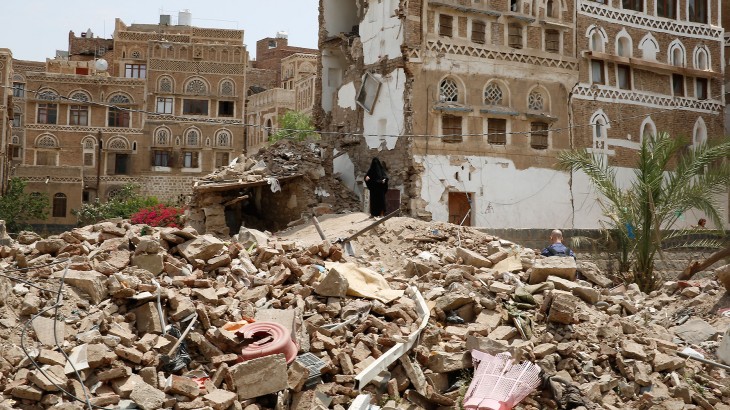
Yemen is a humanitarian disaster. It was a failed state even before its most recent civil war began nearly three years ago. But Saudi Arabian meddling is exacerbating the crisis and there’s no resolution in sight. Yemen is now a case study in how ends and means can diverge at the strategic level.
That the Yemeni war is, in fact, an internal, tribal war complicated by a complex amalgam of Arab Spring (Muslim Brotherhood) influence mixed with Sunni–Shia sectarian rancor and Saudi–Iranian competition is seldom conveyed in the Western press. The vast majority of media outlets routinely comment on the
Iranian-backed Houthi rebels, reinforcing the idea that it’s mainly a proxy war between Saudi Arabia and Iran. But that view is simplistic, misleading and dangerous. While Iran does provide support to the Houthis, it is by no means the main instigator of the Yemen tragedy.
However, the Saudi government sees only Iran’s influence. Prince Mohamed bin Salman, the man behind Saudi Arabia’s intervention in Yemen and now the crown prince, has imbued Saudi Arabia’s foreign policy with renewed activism, especially against anything perceived to benefit Iran. Saudi Arabia originally intervened in Yemen in March 2015 after Houthi rebels drove President Abdrabbuh Mansur Hadi’s government from power and took control of Sana’a, the capital. Ostensibly, the Saudis are seeking to restore the government of Hadi, currently exiled in Riyadh. However, Hadi seems to be more prisoner than guest. At the apparent behest of the UAE,
he has been under virtual house arrest.
Saudi Arabia also wants to minimise Muslim Brotherhood influence and ensure superior sway for the GCC in Yemen. But because it takes no account of Yemen’s internal realities, its objectives are unachievable.
The extended and, sadly, indiscriminate
Saudi air campaign has yielded little success on the ground. On the other hand, it has raised the diplomatic stakes for Saudi Arabia. Reports have consistently blamed the Saudi-led coalition and its air strikes for more child deaths and injuries than are attributed to Houthi rebels.
And it’s only getting worse. On 6 November, Saudi Arabia
closed all of Yemen’s ports, airports and border crossings after a missile attack on Riyadh’s international airport, only to announce a week later that
it would reopen some to allow in humanitarian aid after an international outcry. Meanwhile, humanitarian groups continue their warnings that the blockade will worsen the famine and deepen the cholera epidemic in Yemen.
The West has hitched itself to this policy. Unfortunately,
by siding with the Saudis for strategic, financial and business (especially defence and arms trade) reasons, Western countries have undermined their ability to enforce humanitarian law. As an example, for over three years the UN has been constrained from doing anything other than providing crucial humanitarian assistance.
The problem for the West is that Saudi Arabia is highly unlikely to compromise on its objectives of its own accord, even as Yemen moves towards disintegration. Because the war was bin Salman’s brainchild, he is personally invested in winning. And because he’s driving the future of Saudi Arabia, he can’t afford to lose domestic credibility by failing.
The West must stop being complicit in this humanitarian disaster and start to pressure Saudi Arabia to create an environment for negotiations, and then push the Houthis to reach a negotiated settlement. That will require the Saudis to acknowledge that the Houthis have legitimate grievances.
As difficult as that will be for the Saudi government, even more difficult will be allowing Iran a ‘win’. Any representation of Houthis in power in Yemen will be a victory for Iran. But Iran has already won in other ways. It knows, for example, that it can pressure the Saudis to tread more lightly in Lebanon and Syria or risk being undermined on their southern border. And it will happily use any opportunities to cause further disquiet. Recent issues between the
UAE and the Muslim Brotherhood–aligned Yemeni Islah Party in Aden are symptomatic of this.
Yet the alternative is too horrible to contemplate. With the many thousands killed, millions displaced, and over 10 million in need of immediate humanitarian assistance, Yemen is an unfolding catastrophe. Even before the current conflict began, Yemen’s oil reserves, and therefore its revenue, were virtually exhausted. Its 27 million people were experiencing severe water and food stress and its arable areas were producing little. The situation has only worsened. If Saudi Arabia is not reined in and the situation deteriorates further, the West will bear considerable responsibility.
[6] by siding with the Saudis for strategic, financial and business (especially defence and arms trade) reasons: https://www.washingtonpost.com/news/worldviews/wp/2017/11/09/saudi-arabias-arms-deals-are-buying-the-wests-silence-over-yemen-allege-activists/?utm_term=.d4450909694d
 Print This Post
Print This Post